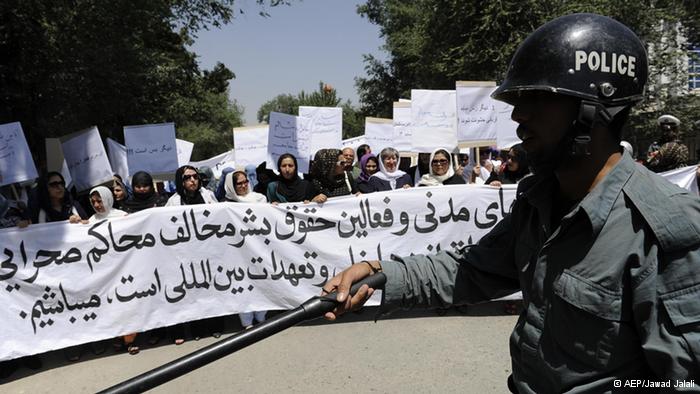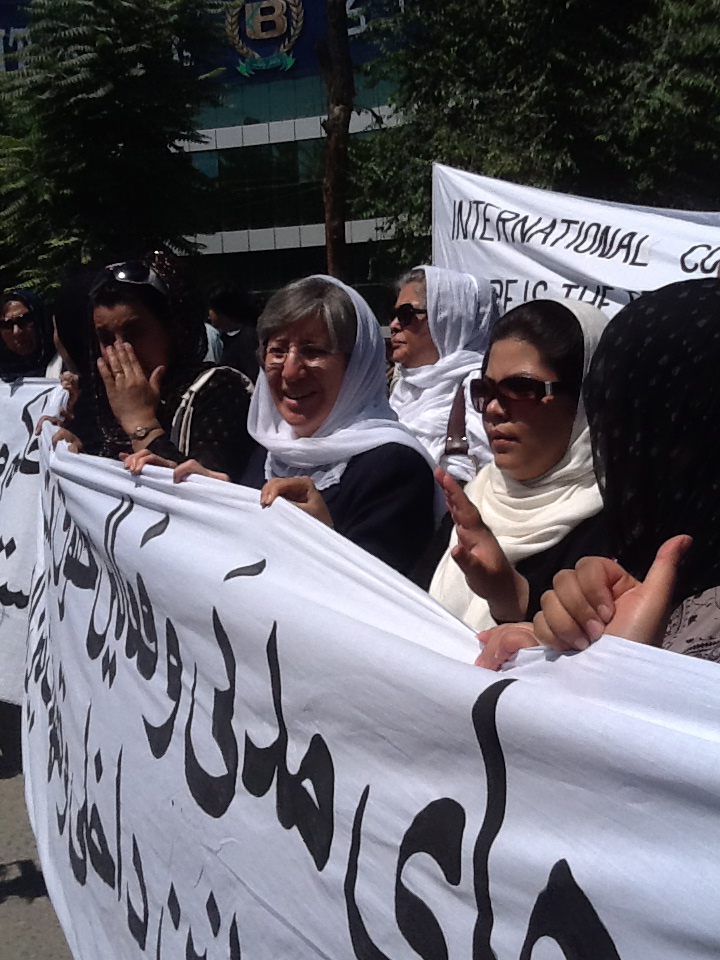Stoning: The case of Afghanistan
In July 2012, Najiba, 21 was stoned and shot dead in Ghorband Valley of Parwan Province in front of a hundred and fifteen men in the community, cheering the stoning. This horrific incident was filmed by a community member who was present. Najiba had been accused of moral crimes by the local warlords and commanders, while the government blamed the Taleban insurgency.
The incident outraged local women’s organizations, activists, the Ministry of Women’s Affairs and the Afghanistan Independent Human Rights Commission, who were all united in their condemnation of the punishment.
Many incidents of stoning in Afghanistan go undocumented or publicized. We know, however, that in November 2011, a mother and daughter were stoned in Ghazni. In August 2011, a couple was stoned to death in Kunduz. And in 2005, Aamina, a 29-year old married woman, was publicly stoned to death in Faizabad after being accused of adultery.
The issue of stoning of women in Afghanistan is highly complicated because it involves various actors who are part of the ongoing conflict. Insurgents, Taleban, armed groups, and warlords use religion as a tool to create terror and fear among people and spread their influence.
Almost every stoning incident has taken place outside the formal legal system of Afghanistan. Tribal leaders create local courts called jirgas and decide on accusations of adultery and stone a woman to death. The man with whom the woman is accused of adultery usually goes unpunished from such a tribal court because he is often given refuge by armed groups or is given the opportunity to flee from the village.
Since these tribal leaders are often armed and terrorize communities, people tend to obey and remain silent even when they disagree with such brutalities against women and girls. Experiences indicate that religious scholars and leaders too cannot openly disagree with the stoning incidents as they may be threatened by armed groups and intimidated by more powerful religious groups who support the stoning of women.
Women’s organizations and activists in Afghanistan don’t have clear allies in their struggles against stoning of women, because religion is heavily politicized in Afghanistan and anyone can be easily convicted for blasphemy by the state or non state actors who issue edicts against them. The allies for women organizations include a small number of scholars in the Ulema Council – individual religious scholars teaching at the Sharia Faculty and other private madrassas, and female political figures.
Another source of alliances for Afghan activists are the international and regional platforms of Muslim women scholars such as WLUML, Shirkat Gah and other partners. Long term and substantial partnerships are needed so that there is regional and international solidarity of Muslim women scholars and leaders with Afghan women activists struggling on the ground.
Furthermore, it would be useful if women activists argue for their rights using religion and religious justifications. Many women activists believe this is the only strategy, given the current context in Afghanistan, to combat the stoning and lashing of women that has gravely increased in the past few years.
Wazhma Frogh
Research Institute for Women, Peace & Security (RIWPS)RIWPS- Afghanistan is a local woman-focused organization established in 2011 to research, document and advocate for women’s inclusion in the peace process and also identify the issues of protection from gender based violence as an obstacle for women’s public participation.




